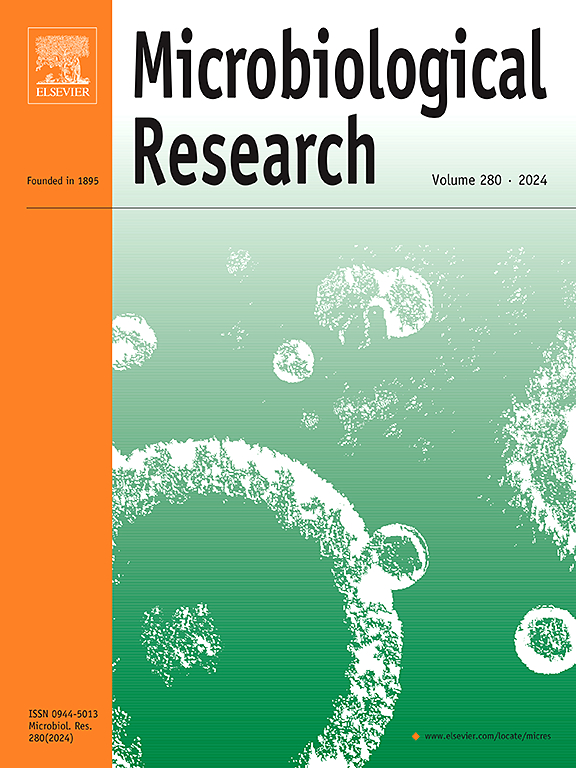Equol neutralizes toxin B to combat Clostridioides difficile infection without disrupting the gut microbiota
IF 6.1
1区 生物学
Q1 MICROBIOLOGY
引用次数: 0
Abstract
Clostridioides difficile (C. difficile) toxin B (TcdB) is essential for C. difficile pathogenicity. TcdB induces apoptosis in host cells by internalizing and utilizing its glycosyltransferase activity to modify members of the small GTPase protein family through glycosylation. The intestinal environment is critical for the colonization of C. difficile, and the use of broad-spectrum antibiotics disrupts the balance of the gut microbiota, leading to increased susceptibility of the host to C. difficile. At present, the mainstream clinical approach for treating C. difficile infection (CDI) involves antibiotic therapies such as vancomycin, which disrupt the gut microbiota and are associated with a considerable risk of infection recurrence. Therefore, there is an urgent clinical need to develop new strategies to combat CDI. Here, we have identified a natural compound, equol, which inhibits the TcdB-mediated glycosylation of Rac1 through direct interaction, thereby reducing TcdB-induced cell death. Equol functions as an inhibitor of indoleamine 2,3-dioxygenase 1 (IDO1) and tryptophan 2,3-dioxygenase (TDO), effectively suppressing the conversion of tryptophan to kynurenine in the intestinal tract while preserving the integrity of the gut microbiota. Concurrently, equol exhibits robust antioxidant properties, which markedly reduced TcdB-mediated oxidative damage and subsequent cell death. These findings suggest that equol holds therapeutic potential for the treatment of CDI.
雌马酚中和毒素B,在不破坏肠道微生物群的情况下对抗艰难梭菌感染
艰难梭菌(C. difficile)毒素B (TcdB)是艰难梭菌致病性所必需的。TcdB通过内化和利用其糖基转移酶活性,通过糖基化修饰GTPase小蛋白家族成员,诱导宿主细胞凋亡。肠道环境对艰难梭菌的定植至关重要,广谱抗生素的使用破坏了肠道菌群的平衡,导致宿主对艰难梭菌的易感性增加。目前,治疗艰难梭菌感染(CDI)的主流临床方法包括万古霉素等抗生素治疗,这些药物会破坏肠道微生物群,并伴有相当大的感染复发风险。因此,临床迫切需要制定新的策略来对抗CDI。在这里,我们发现了一种天然化合物马雌酚,它通过直接相互作用抑制ttcdb介导的Rac1糖基化,从而减少ttcdb诱导的细胞死亡。马雌酚作为吲哚胺2,3-双加氧酶1 (IDO1)和色氨酸2,3-双加氧酶(TDO)的抑制剂,有效抑制肠道中色氨酸向犬尿氨酸的转化,同时保持肠道微生物群的完整性。同时,马雌酚显示出强大的抗氧化特性,显著减少tdbb介导的氧化损伤和随后的细胞死亡。这些发现表明雌马酚具有治疗CDI的潜力。
本文章由计算机程序翻译,如有差异,请以英文原文为准。
求助全文
约1分钟内获得全文
求助全文
来源期刊

Microbiological research
生物-微生物学
CiteScore
10.90
自引率
6.00%
发文量
249
审稿时长
29 days
期刊介绍:
Microbiological Research is devoted to publishing reports on prokaryotic and eukaryotic microorganisms such as yeasts, fungi, bacteria, archaea, and protozoa. Research on interactions between pathogenic microorganisms and their environment or hosts are also covered.
 求助内容:
求助内容: 应助结果提醒方式:
应助结果提醒方式:


